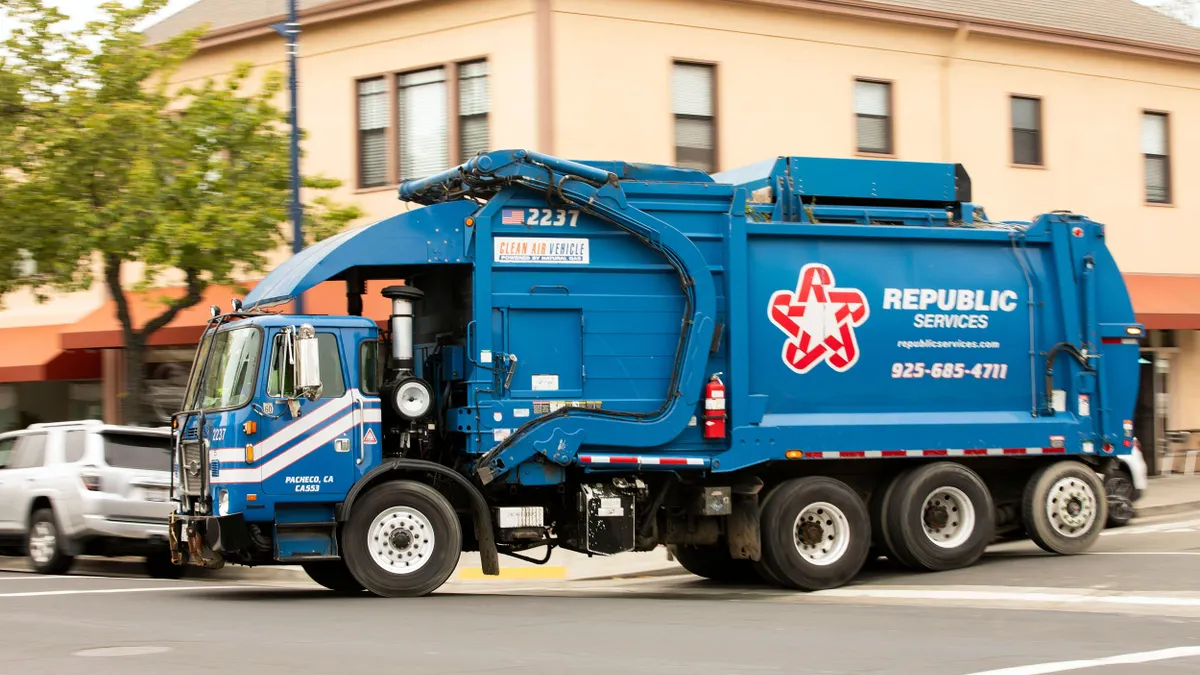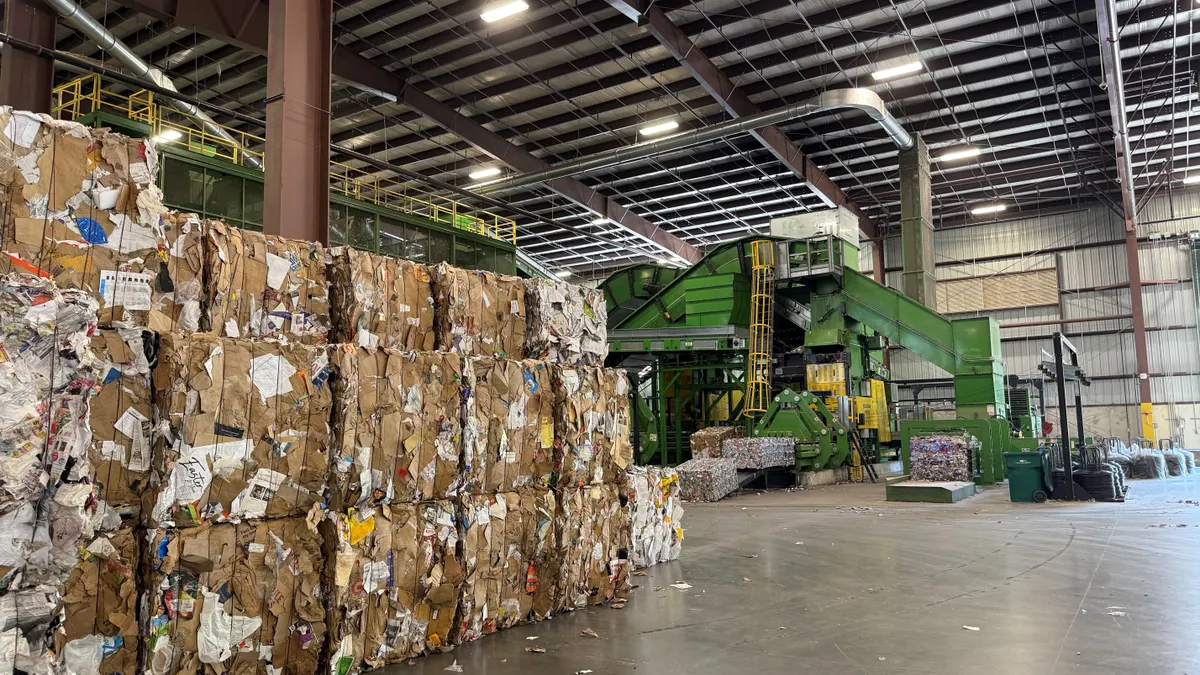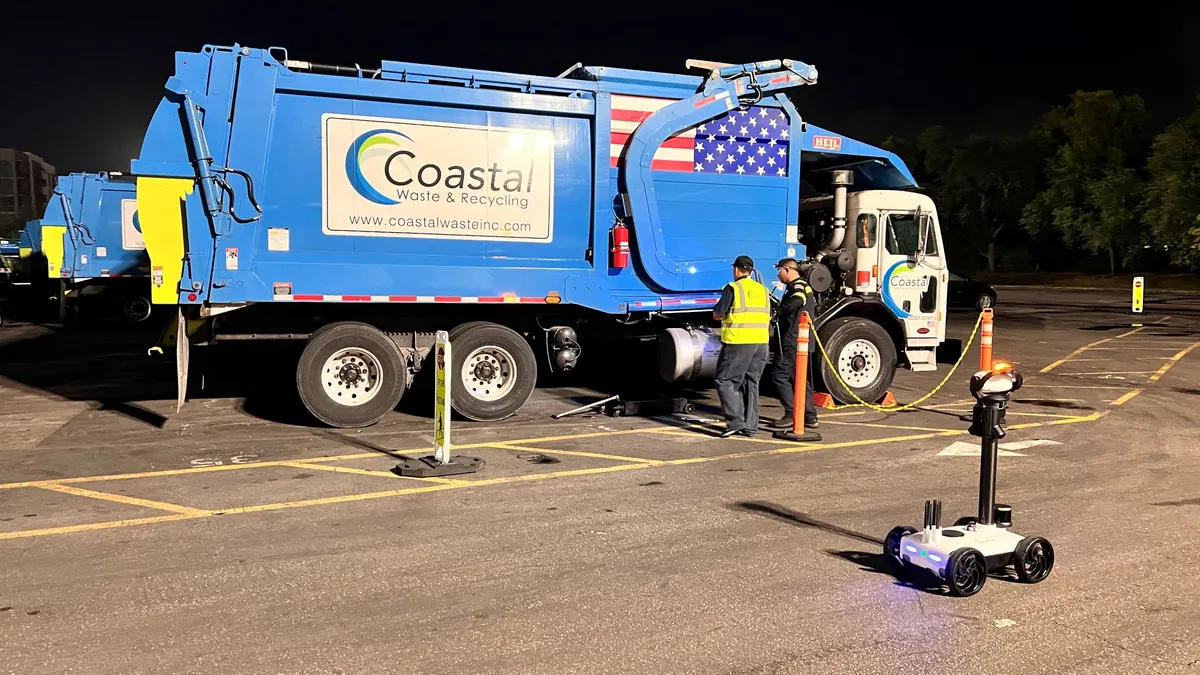The San Jose City Council voted unanimously at its Aug. 22 meeting to approve a settlement for workers that Republic Services argued aren't covered by the city's living wage ordinance. The council also put plans in motion to prevent a similar conflict from happening again.
The decision came after multiple months of debate, will apply to five years of service and is seen as less than ideal by all involved.
The city's current living wage is $20.57 for workers that receive health benefits and $21.82 for those that don't. An estimated 160 workers at the company's Newby Island recycling facility will now make $17.29 per hour. Restitution will also be paid to those who worked at the facility from July 2012 through June 2017.
The city's Office of Equality Assurance had previously estimated that 193 workers were owed $2.6 million for work in 2012 and 2013 alone, and called for nearly $7.8 million in liquidated damages for living wage violations. Per the settlement, Republic will contribute $2.75 million to a restitution fund and also pay about 40% of the estimated annual cost to raise hourly rates. The remaining balance will be passed on to commercial customers through a 2.39% rate increase.
With the stated goal of avoiding further discrepancies, the council passed a motion to assess all current and future waste franchise contracts to ensure that the living wage requirement was included. This council report will also review how other cities handle living wage requirements in their own contracts.
The commercial waste franchise agreement between San Jose and Republic subsidiary Allied Waste took effect in July 2012. The company maintains that the staff at its Newby Island material recovery facility is exempt from city living wage laws because they were hired by the agency Leadpoint Business Services.
The council has delayed a decision on this settlement multiple times since City Attorney Richard Doyle recommended approving a settlement in a June memo to avoid "very expensive and time-consuming litigation." Multiple council members expressed their reservations about the plan and labor organizations opposed it.
Sorting through the franchise contract details and determining whether workers spent at least 50% of their time handling San Jose material — a living wage requirement — made the issue particularly complicated. Republic's position was that the only alternative to this settlement would have been as many three or four years of litigation. The company declined to comment for this story.
A two-page letter to the council from General Manager Evan Boyd, dated Aug. 22, appears to be Republic's most recent public comment on the issue. Boyd, after outlining the company's position, concluded with the following assessment of the council's options: "The proposed settlement presented for your consideration and approval represents years of good faith negotiations between the parties with the assistance of an experienced mediator. We believe it does not set a precedent or undermine current City policy, puts workers first and provides a fair, equitable and timely resolution of this issue."
The labor groups opposing this settlement recognized elected officials were in a difficult position, but disagreed that the settlement's effects would be unique to the Republic contract.
"In the end, Republic basically exploited some loopholes in the contract language," Doug Bloch, political director for Teamsters Joint Council 7, told Waste Dive. "This two-tier living wage that’s coming out of this settlement is going to set a terrible precedent because everybody’s going to ask for that."
According to Bloch, three of the four other companies with city waste franchise agreements have unionized workforces. A representative for a subsidiary of the only company that doesn't, GreenWaste Recovery, spoke at the council meeting to ask for "relief" on wage requirements based on the Republic settlement.
The timing of this living wage question is seen as especially relevant, because San Jose has begun to assess options for its next round of residential franchise agreements. Bloch said the supplemental motion to review contract terms was "the only silver lining" of this outcome. Multiple council members made it clear they didn't intend to allow similar exemptions in the future.
"Unfortunately, we find ourselves in this situation where we have a difference of opinion. And we're looking for a way to really move forward to really take care of the employees, and do right by them...but at the same time, trying to ensure that we don't come across this situation again as a city," said Councilmember Raul Peralez, a co-sponsor of the motion, during the meeting.
The Teamsters already represent Republic drivers that service the city's commercial waste franchise accounts, as well as employees at other locations. Efforts to bargain on behalf of the MRF workers have been unsuccessful for years, because of their employment with the staffing agency.
In 2015, the National Labor Relations Board ruled that subsidiary Browning-Ferris Industries — the MRF operator — had to negotiate with the employees. This joint employer ruling has become a closely watched legal precedent and is currently under consideration by the U.S. Court of Appeals. A separate state law that took effect in 2015, AB 1897, may further complicate the company's responsibilities in California.
Republic has billed the Newby Island Recyclery as "the most advanced recycling facility in the world," with the capacity to process 110 tons per hour of San Jose's commercial and residential material. Labor advocates often hold up the San Jose franchise system as an example of what's possible in other cities, too. All the factors that the San Jose City Council had to weigh this week show that the full picture may be much more complex.


















